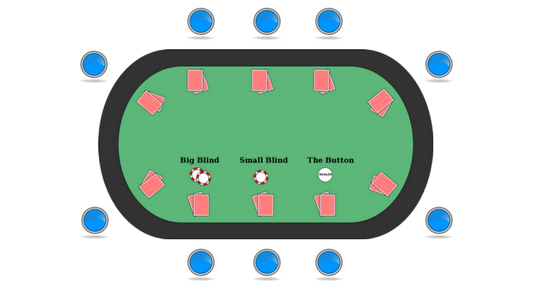Poker, a game of skill, strategy, and psychological prowess, has captivated players for generations. Whether you’re new to the game or looking to enhance your skills, understanding fundamental poker strategies is essential for success. In this article, we’ll guide beginners through the key strategies that lay the groundwork for becoming a confident and strategic poker player.

Starting with Solid Hand Selection:
One of the cornerstones of poker strategy is starting with strong hands. While it’s tempting to play every hand, selectively choosing hands to play improves your chances of winning. Focus on premium hands like high pairs, high-suited connectors, and strong face cards, and avoid weaker hands that can lead to losses.
Positional Awareness:
Understanding your position at the poker table is crucial. Players in later positions have more information about their opponents’ actions, enabling them to make better decisions. Play tighter in early positions and more aggressively in later positions, utilizing this positional advantage to your benefit.
Embrace Aggressive Play:
Aggressive play involves betting and raising rather than passively calling. Aggressive players dictate the pace of the game and put pressure on opponents. Mix up your play between aggressive and conservative approaches to keep your opponents guessing.
Be Mindful of Pot Odds:
Pot odds help you determine if a call is profitable based on the size of the pot and the cost of the call. Understanding pot odds aids decision-making, allowing you to assess whether the potential reward justifies the risk.
Reading Opponents:
Poker is not just about the cards; it’s also about reading your opponents. Pay attention to their betting patterns, facial expressions, and tendencies. Over time, you’ll develop the ability to make informed decisions based on the information available.
Bluff with Purpose
Bluffing is a strategic tool, but it must be used judiciously. Bluff when the situation aligns with the narrative you’ve built during the game and when you have a reasonable chance of success. Successful bluffs can enhance your table image and keep opponents off balance.
Practice Patience:
Patience is a virtue in poker. Waiting for strong hands and favorable situations reduces your chances of making costly mistakes. Avoid the temptation to chase unlikely draws and focus on playing solid hands.
Manage Your Bankroll:
Bankroll management is essential for long-term success. Set aside a dedicated poker bankroll, and avoid risking more than a small percentage of it in any single game. This approach ensures that losses won’t cripple your overall poker journey.
Study the Game:
Continual learning is integral to improving your poker skills. Read books, watch instructional videos, and analyze your own gameplay. Understanding advanced concepts like pot equity, implied odds, and range analysis can take your skills to the next level.
Control Emotions:
Poker is a mental game that requires emotional control. Stay composed, even in the face of losses or bad beats. Emotional decisions can lead to poor choices and losses, so strive to maintain a calm and rational demeanor at the table.
Start Small:
Begin with low-stakes games to gain experience without risking significant amounts of money. This approach allows you to practice your strategies, learn the nuances of the game, and gradually build your skills.
Adapt to Your Opponents:
Poker is dynamic, and your strategies should adapt to your opponents. Against aggressive players, adopt a tighter style, and against passive players, be more aggressive. Flexibility in your approach gives you an edge against different opponents.
Conclusion: A Journey of Strategy and Growth
Becoming a proficient poker player is a journey marked by strategy, practice, and continuous improvement. By mastering fundamental strategies, you’ll lay a strong foundation that enables you to navigate the complexities of the game. As you gain experience and refine your skills, you’ll discover that poker is not just about the cards—it’s about the art of decision-making, understanding human psychology, and the thrill of outwitting your opponents. Approach poker with a strategic mindset, embrace the challenges, and savor the growth that comes with every hand dealt and every decision made.

